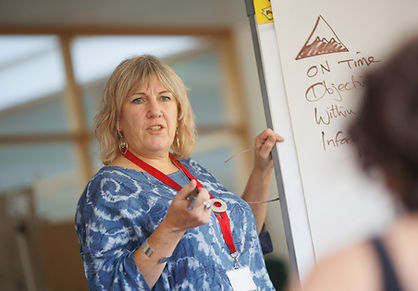
ALL CONTENT
AREAS
Sheltered Instruction: Supporting Multilingual (ELL) Learners in our Schools and Classrooms
Sheltered Instruction integrates language and content for multilingual learners. This three-day training equips participants with effective strategies to support these students. The presenter is certified in TESOL and Sheltered Instruction, benefiting districts requiring a bilingual waiver.
GRADES:
PreK-12
Creative Writing Activities for Multilingual Learners ( MLLs) in the Elementary Classroom
Multilingual learners (MLLs) face challenges in writing. This workshop offers elementary teachers effective strategies to engage MLLs in writing activities that promote language development and creativity.
GRADES:
PreK-12
Implementing SIOP for Public School Support Staff: Effective Strategies for
English Language Learners
Many public school support staff feel their efforts for English Language Learners (ELLs) are insufficient. In this workshop, we will transform effective practices into highly effective ones using the Sheltered Instruction Observation Protocol (SIOP) framework. We’ll explore key strategies and evaluate current practices for improvement. Join us to enhance your skills and increase your impact on ELLs in your school.
GRADES:
PreK -8
Foundations of Behavior Management: Strategies, Intervention and De-Escalation Techniques.
Tired of giving stickers, tickets and coupons without them having an effect on a student's behavior? In this workshop, we will explore a variety of effective classroom management strategies and the foundational components of behavior management to ensure success of interventions and positive supports.
GRADES:
PreK -8
Keys to Success for Paraprofessionals
The role of paraprofessionals allow for an additional layer of support within the classroom setting. In this workshop, paraprofessionals will have an opportunity to expand their knowledge and skills on a collection of strategies to implement within the classroom environment to support students with various needs.
GRADES:
PreK -8
Deciphering Behavior as a Pathway to Strategies of Regulation
This workshop will equip staff to recognize a variety of behaviors as signs of dysregulation. We will then have hands-on exploration of science backed strategies/tools of regulation. Followed by a discussion of classroom scenarios in order to apply the understanding of both the behaviors and the choice of strategy/tool.
GRADES:
PreK -8
Speaking to Students and with Students: How Our Words Matter
Discover how the language we use when speaking to and with students matters. Our words can be used to provide clear, explicit directions, to inspire, to support and encourage, and, ultimately to shape students' outlook on school experiences. In this workshop, educators will collaborate and learn about how to effectively use their language to engage and support students across a variety of settings.
GRADES:
PreK-8
The Power of Positivity: Influencing Behavior in the Classroom Setting
To achieve academic success, students must be present, engaged, and ready to learn. Teachers can shape the classroom environment and influence student behavior through the 'Power of Positivity.' In this workshop, participants will explore the principles of Positive Behavior Support and learn strategies to transform their classrooms into engaging learning communities.
GRADES:
PreK-12
Developing Strong Teacher Support Teams: Teachers, Paraprofessionals and Basic Skills Teachers
Our greatest assets are our teachers and support staff professionals who use their levels of expertise and knowledge of their students’ needs to collaborate and develop a productive system of support for all students. During this workshop, strategies, hands-on experiences and useful information are provided for teachers to implement for optimum student achievement
GRADES:
K-3
Exhausted and Frustrated- How to Restore Your Center as an Educational Leader
Educational leaders have gone above and beyond during the pandemic with little time to process the events of the past few years. As the challenges and demands on educators have increased ten-fold, many are heading into the summer feeling exhausted, frustrated, and unsure of how they will manage in September. While difficulty and changes bring challenges and heavy emotions, they can also bring opportunities to grow. As school leaders we have the chance to build a stronger, more resilient school community.
In this workshop, we will utilize the practice of reflection to develop a critical awareness of our experiences, emotions, and needs in order to build a framework for reentry in September so that we can support ourselves and our teachers in new and healthier ways.
GRADES:
Mastery-Based Grading
How do we move beyond the exit ticket to discover new ways to formatively assess/student learning.
GRADES:
Maslow before Bloom: Using Culturally Responsive Pedagogy to Increase Student Motivation and Engagement
This session will describe culturally responsive pedagogy in the context of relationship building, and how to use these relationships to increase student engagement and motivation. During this interactive session, attendees will learn some best practices to implement within the classroom that could be applied in both in- person or in a remote classroom session that will strengthen students' motivation and eagerness to learn. Using research by Cornelius Minor and Zarretta Hammond participants will take away a plethora of resources and activities to implement immediately into the classroom setting.
GRADES:
K-8











